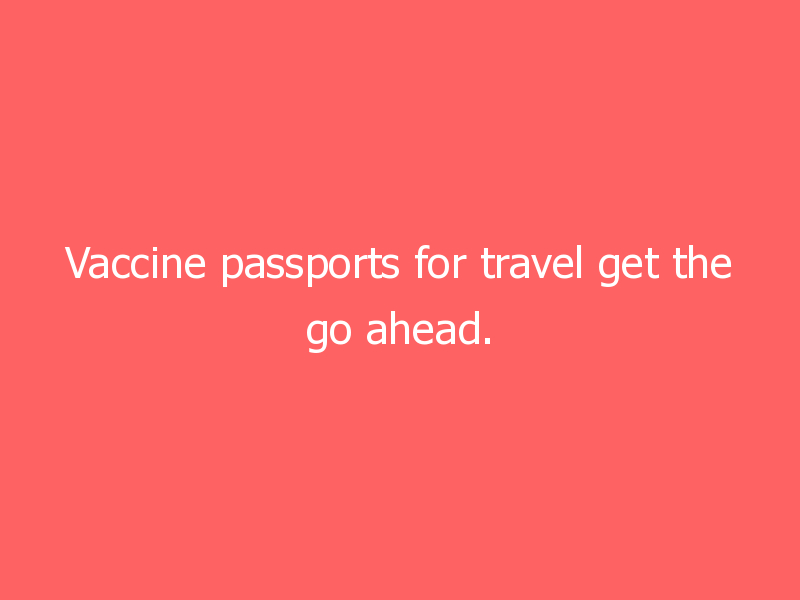Vaccine passports for travel get the go ahead. But there will be concerns about where else they could be applied.

This time last year, the concept of a “vaccine passport” would have sounded utterly bizarre to most people; dystopian, even.
And yet, here we are. Today The Times reports that the Government is developing “Covid vaccine passports to allow foreign holidays”.
Currently anyone who has been vaccinated is given a rather primitive record card.
But all of this is set to change as the Foreign Office, Department for Transport and Department of Health and Social Care are putting together documentation to help travellers reach countries that might demand vaccine verification upon entry.
Already there are complaints about this proposal, not least because Nadhim Zahawi, who’s in charge of the vaccine roll out, Tweeted on January 12 that the Government has “no plans to introduce vaccine passports.”
.We have no plans to introduce vaccine passports. We have vaccinated, as of yesterday, 2,431,648 first dose and 412,167 second dose. No one has been given or will be required to have a vaccine passport. @NHSuk @Emily_JR_Lawson
— Nadhim Zahawi (@nadhimzahawi) January 12, 2021
To add to the confusion, in December last year he suggested that restaurants, bars and cinemas could use an immunity passport system, only for Michael Gove to say “I certainly am not planning to introduce any vaccine passports, and I don’t know anyone else in government who is.”
Overall, the Government has sent out very mixed messages on vaccine passports/ identification, which are poorly defined. So the news today will invite more questions and concerns about what activities they are applied to.
People naturally have fears about a vaccine passport for many reasons, some of which I detailed in December for ConservativeHome.
For instance, it could lead to a two-tier society in which one’s health status is a determinant of freedom, and raises lots of questions about the sharing of health data.
That being said, the Government’s pursuit of vaccine passports is only really directed at travel currently – and largely a result of other countries insistence on having such a system in place.
Already Denmark and Sweden have said they’ll introduce digital vaccine “passports” for travel; Estonia and the UN’s health agency have been creating e-vaccination certificates; and the list goes on.
Corporations, too, are getting tough on proof of vaccine. Saga, which provides holidays for people over 50, says passengers on its future trips must have had their jabs.
Qantas, the Australian airline, has also said the same for its flights.
So the Government is ultimately at the whim of market/ international forces, doing its utmost to make sure Brits have the tools to travel where they want to in the summer.
The move is also about boosting tourism in countries such as Greece, where two million Britons visit Greece every year, spending over EUR10 billion.
The country is preparing to waive its quarantine rules for tourists who can prove they’ve been inoculated against Coronavirus, and government officials have been speaking to the Greek Ministry of Tourism to get this system finalised.
The challenge for the Government is determining other parts of policy.
For instance, would the vaccine passport mean that older generations get to travel this summer while young people (who will be vaccinated last) stay at home?
What happens to vaccine passports if the virus mutates?
And will the passports vary to take into account the different efficacy levels of vaccines?
There are also signs of employers wanting workers to be vaccinated, but it’s not obvious what government policy is in regards to which occupations should have jabs (if anyone should be mandated at all).
In short, choosing to have a vaccine passport is the easy part.
Given the lack of unified communications so far, the Government’s messaging on the fine details of vaccine passports will be interesting to say the least.
Originally found on Conservative Home Read More








